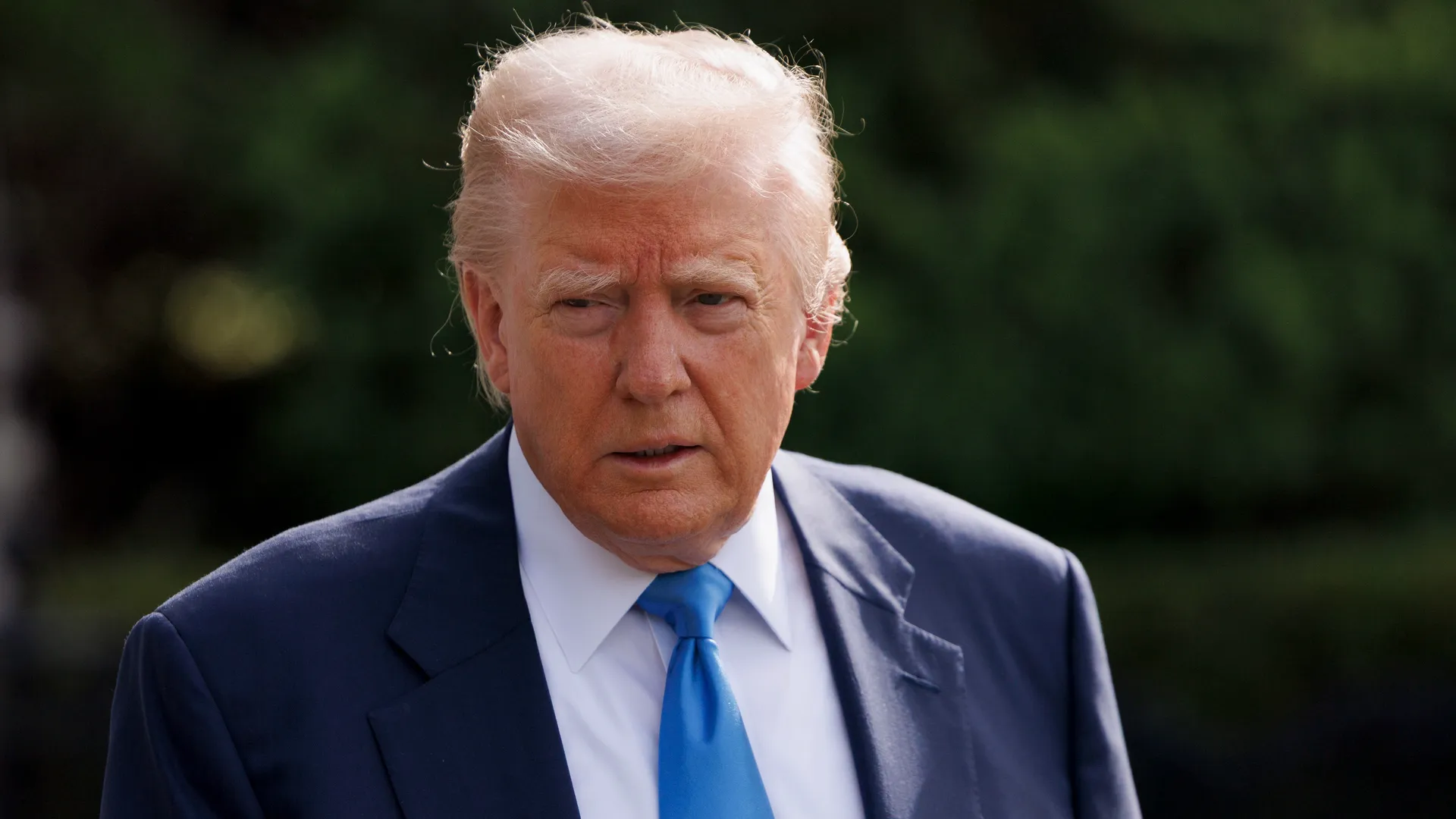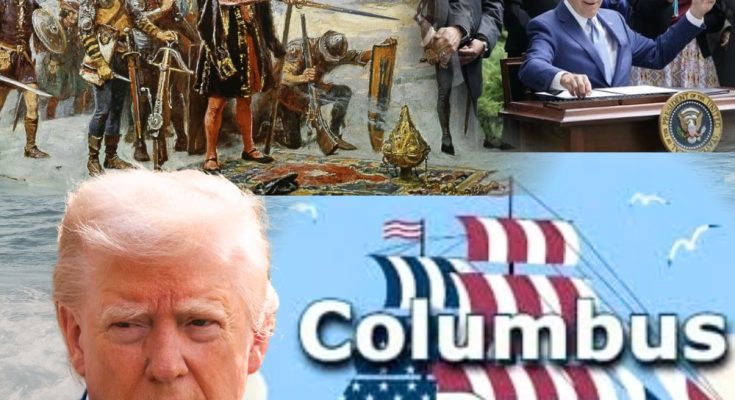
President Trump said Sunday that he plans to reinstate Columbus Day as a federal holiday, and blamed Democrats for its absence.
The big picture: A president cannot unilaterally erase or declare federal holidays — Congress is required for such a move — and Columbus Day is still a federal holiday, though Indigenous Peoples Day has replaced it in over 200 cities and multiple states as of last year.
- Maine, Vermont, New Mexico and Washington D.C., Los Angeles and Seattle are among those celebrating Indigenous Peoples Day on the second Monday in October, the same date as Columbus Day.
- Three states, New York, Rhode Island and Nebraska, recognize both holidays.
In October 2024, Axios staff research determined that over half of U.S. states don’t recognize either day as a state holiday.
What they’re saying: “I’m bringing Columbus Day back from the ashes. The Democrats did everything possible to destroy Christopher Columbus, his reputation, and all of the Italians that love him so much,” Trump wrote Sunday on Truth Social.
- “They tore down his Statues, and put up nothing but ‘WOKE,’ or even worse, nothing at all! Well, you’ll be happy to know, Christopher is going to make a major comeback,” he said.
- Trump added that he was reinstating the holiday “under the same rules, dates, and locations, as it has had for all of the many decades before!”
Reality check: Congress is required to create a federal holiday by using the same process as to pass any law. Presidential powers to create federal holidays are limited, such as issuing an executive order for a National Day of Mourning.
- Any presidential executive order would apply for one time only and would need to be reissued each ensuing year to remain active.
- New Mexico Senator Martin Heinrich presented a bill and multiple representatives did the same in the House in Fall 2023 to make Indigenous Peoples Day a federal holiday instead of Columbus Day.
- Neither bill made it to a floor vote.
Zoom in: Indigenous Peoples Day began in the 1990s and has gained momentum since, including in 2001 when President Biden became the first president to formally acknowledge the holiday with a proclamation.
- The Biden administration also continued to acknowledge Columbus Day, and issued proclamations throughout Biden’s presidency about the holiday.
- Christopher Columbus has long been a controversial figure, with many objecting to celebrating a day in honor of the 16th-century explorer given his history with colonization, as well as torture and genocide of indigenous peoples.
Zoom out: Protests over the explorer and his namesake holiday most recently came to a head in summer 2020 when several statues of Columbus were vandalized or damaged during the Black Lives Matter movement.



